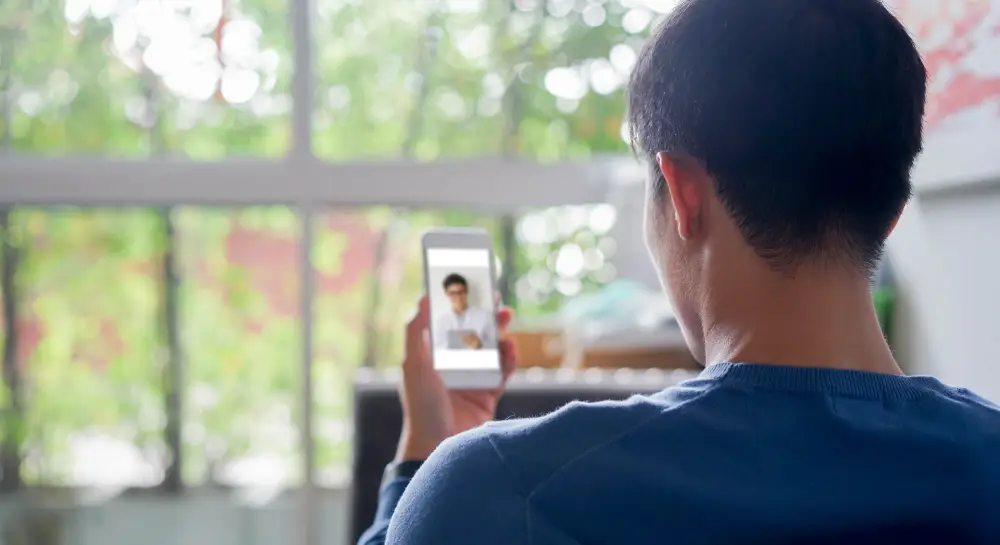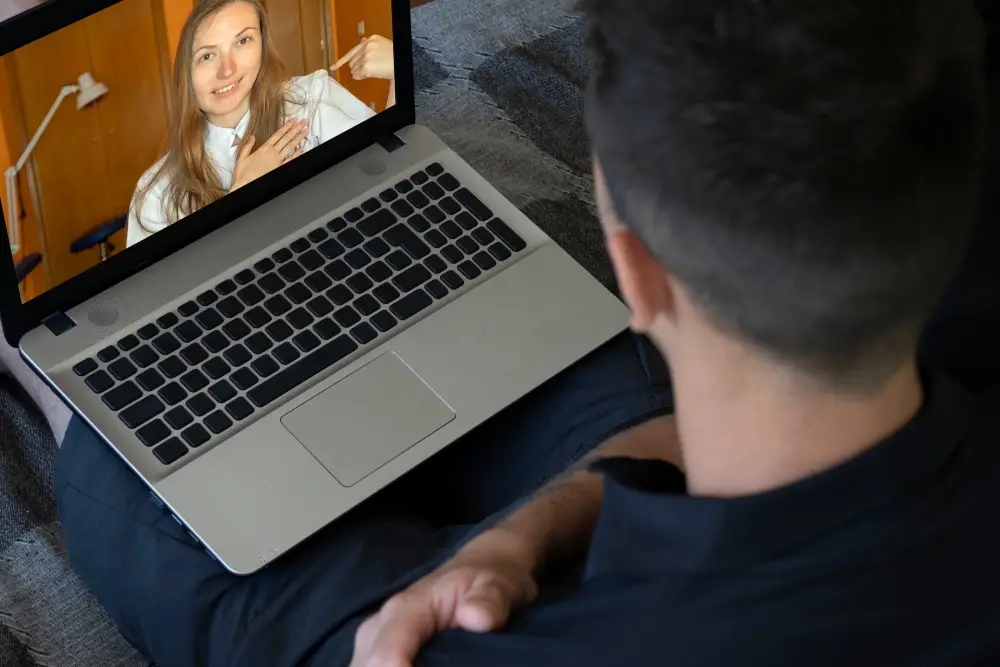Virtual reality (VR) alludes to a computer created reenactment in which an individual can communicate inside a counterfeit three-dimensional climate utilizing electronic gadgets, for example, special goggles with a screen or gloves fitted with sensors.
Put on a headset and glance around. You’ll see a simulation of an intelligent, three-dimensional climate. Look upward, and you’ll see the sky; peer down, and your own hands and feet may come into seeing.
Ivan Sutherland
The first VR (virtual reality) headset was made in 1968 by the American computer researcher and scientist “Ivan Sutherland” and his intelligent student, Bob Sproull.
Virtual reality is an approach to establish a computer-created environment that submerges the user into a virtual world. Whenever we put on a VR headset, it takes us to a simulated set-up, making us reserved from the fundamental environmental factors.
What is the purpose behind virtual reality?
Virtual reality technology is predominantly used to make vivid experiences that can be helpful even to entertain customers. Besides its dominant and famous gaming usage case, virtual reality is applied ethically in an assortment of businesses, e.g., engineering, medication, military, and others.
Games, medical procedures, and pilot test programs are the most notable uses of virtual reality; however, other, lesser well-known applications include Visualizations, for example, geological—study and treatment of addictions and climate forecasting.
The Basics:
The virtual reality kit’s critical piece is the cool headset, a gadget like a big and thick pair of goggles that you wear over your eyes. The more costly, better headsets should be associated with a PC to run applications and games, while some less expensive ones utilize a cellphone clipped to the front of the headset.
Technology and Therapy:
Virtual reality technology can give patients a protected environment to come into contact with things they dread or fear while staying in a controlled and safe climate. It is only one of the manners in which virtual reality can positively affect society.
With Virtual Reality, connecting to the authentic real world is possible. One of the advantages of utilizing VR innovation is that students can learn about the world outside of their classrooms while never leaving it. VR stretches out the range of education to any place teachers envision they need to take their students.
Fears & Phobias:
Virtual reality therapy can help individuals by presenting them progressively to their most prominent fears. The technology and therapy are a few seconds ago arriving at the standard following 20 years of exploration.
Equipment is lighter and more reasonable, with tech progresses pouring out over from the gaming industry to help people battle handicapping fears of flying, heights, insects, or dogs. The floods in items are bringing VR to more specialists’ workplaces. Specialists anticipate people with gentle phobias and fears will treat themselves effectively at home.
Exploration shows VR treatment can prompt real gains for people with fears and works and traditional exposure therapy, which gradually subjects patients to what exactly causes nervousness and anxiety for them. With exposure therapy, a therapist can go with a person who’s apprehensive about heights to a tall structure. With VR, a patient figures out how to have a sense of security on a virtual high-rise balcony without leaving the therapist’s office.
Introduction works by gradually taking the oomph out of the panic. Sweaty palms and beating heartsease. Fears shrink to reasonable and manageable levels. By braving it, a person learns the emotions are survivable. The best examinations on VR introduction treatment have been little with less than 100 patients. Progressively the web will convey the VR treatment at home, a still to a great extent unstudied zone. Such ties are significant for VR organizations, which need logical believability to offer their products to therapists.
Is virtual reality is helpful for fears and anxieties?
Symptoms of Depression:
The absolute most normal depression symptoms are as per the following. They may happen as multiple scenes consistently or most days:
• Feeling miserable, sad, empty, hopeless
• Loss of interest or delight in ordinary activities once enjoyed
• Feelings of disappointment, frustration, disturbance, or anxiousness
• Tantrums over minor things
• Thoughts of self-destruction or suicide
• Feeling liable or shameful
• Trouble sleeping or over-sleeping
• Increase or reduction in hunger
Antidepressants Side Effects:
Although proven effective, antidepressants cause some genuine side effects. An expansion in self-destructive musings or suicidal thoughts is one of the most severe side effects that compromise the threat to patients’ health and life. Other usual side effects are nausea, drowsiness, insomnia, anxiety, agitation, and, ofcourse, restlessness.
Virtual reality therapy could be a more secure and reliable treatment method as it doesn’t convey any of the side effects caused by antidepressants.
How virtual reality can help treat depression:
In the 1960s, The researcher first presented virtual reality utilization to treat mental health symptoms at MIT. This restorative procedure was utilized to treat patients with post-traumatic stress disorder (PTSD) and spider phobia. The Duke University Virtual Reality Treatment Program uses VR to treat anxiety disorders identified with the fears of flying, public speaking.
Since the 1960s, virtual reality ideas were taken and are being formed into a more clinical and complex strategy for treating gloom & depression.
The virtual reality technology resembles that of a game-theatre setup. Patients will utilize a virtual reality headset with a review screen to see themselves from a life-size avatar’s perspective. This is known as the “epitome.”
Controlled Environment:
The consoles and headsets furnished the mental health counseling room to help patients remember experiences that caused their depression and anxiety symptoms. Therapy meetings will be directed in a controlled virtual world where their avatar acts will set off patients. These are triggers that would regularly inspire negative contemplations and responses of self as well as other people.
A patient will choose to pick their response from a pop-up menu and submit it into the virtual world. Along these lines, they will observe their musings and behavioral reactions from a third-person viewpoint. A therapist will collaborate with and guide the patient throughout the meeting.
Proficient and Convenient:
The proficiency of utilizing VR content for treating depression lies in the technology’s capacity to make circumstances that will show patients how to deal with their musings, sentiments, and responses to things that trigger their most depressive scenes. Tests can also lead test to test reactions and situations a patient has never experienced yet might confront. Patients will be prepared to change or adjust their responses to actual real-life situations to change the result negatively to a positive one.
Going through treatment in a controlled virtual world can eliminate fears, anxiety, depression, tension, and disgrace felt while going through conventional exposure therapy. It is the therapy place where patients are constrained to go out into this present reality to face or re-carry on with specific life experiences. Patients who are modest or ashamed will have the option to participate in meetings distantly from their own homes’ privacy.
Financially Savvy:
Considering the strategies for creation and moderately minimal effort of virtual reality systems available, almost certainly, virtual reality systems for treatment could be as reasonable. Their utilization can get far and wide, as an ever-increasing number of people who experience the ill effects of sadness and depression may become tied up with this more non-intrusive form of misery therapy.
Utilizing this cutting-edge device may also mean gigantic protection investment funds since virtual reality treatment can be less tedious. The insurance investment funds factor appears to be encouraging regarding decreasing the overall cost of depression and anxiety treatment on the economy when considered against the public statistics.
Tiptalk:
Everyone has a fear that they fight with for the duration of their lives. Whether one experiences fear of heights, a particular phobia, or PTSD (Post-traumatic stress disorder) from a past incident. Virtual reality can help as a remedial measure. I bet you’re considering how? Virtual reality allows you to experience your fears without living through them continuously in the real-time frame. Virtual reality (VR) treatment makes your most exceedingly awful fear through 3D virtual reality goggles that empower you to take part in scenes identified with your condition thoroughly.
The usage of this new technology to battle depression and anxiety at the same time is still advancing and needs tweaking to make it pragmatic and successful. But, when authoritatively affirmed as a strategy for treatment, virtual reality could give a progressive method to treat patients utilizing best in class technology and enhance procedures.
So far, members of virtual reality preliminaries have revealed massive improvement in their anxiety and depression effects. Some showed being less self-basic when confronted with genuine real-life circumstances. An introductory critical investigation of the study, in any case, assumes that virtual reality therapy appears to work best in the treatment of anxiety disorder.
Using virtual reality content to treat patients doesn’t imply that treatment will become obsolete, especially with antidepressants and psychotherapy. But at least, patients won’t need to manage the genuine symptoms of antidepressants or the pressure or stigma appended to exposure therapy.

Arely Ambriz
February 16, 2026
Beyond the Finish Line: What the Austin Marathon Teaches Us About Starting Our Mental Health Journey
Find the mental health support you need with expert Therapists and Psychiatrists in Houston. Build resilience, conquer challenges, and celebrate your progress on your journey to growth....

Arely Ambriz
February 13, 2026
The Finish Line Friday Q&A: Navigating a Booming Career Without Burning Out
Struggling with work stress and saying “no”? Learn how to manage ambient stress, reclaim your weekends with a reset blueprint, and set healthy boundaries at work with our expert advice....

Arely Ambriz
February 12, 2026
When Communication is Grounded: Navigating Relationship Turbulence in a World of Conflict
Learn practical tips to manage mid-week stress, build resilience, and improve mental health with mindfulness techniques and professional support options in Texas....

Arely Ambriz
February 11, 2026
Is Your Mid-Week Grind a Marathon or a Sprint? Navigating Stress on the Path to Success
Learn practical tips to manage mid-week stress, build resilience, and improve mental health with mindfulness techniques and professional support options in Texas....

Arely Ambriz
February 10, 2026
Beyond the Bottom Line: Is a “Growth-at-All-Costs” Economy Taxing Your Mental Health?
Beyond the Bottom Line: Is a “Growth-at-All-Costs” Economy Taxing Your Mental Health?...

Arely Ambriz
February 9, 2026
From Heartbeats to Hope: How a Second Chance Can Reignite Your Monday Motivation
Feeling stuck? Learn how to create your own “second chance” and build a more intentional future. Discover journaling prompts and find support to start your new beginning today....

Arely Ambriz
February 6, 2026
Is Your Brain’s “Emergency Alert” System Overloaded? A Texan’s Guide to Reclaiming Your Weekend
Discover how to recognize and respond to your internal ’emergency alerts’ for burnout. Learn practical tips to recalibrate, set boundaries, and truly unplug this weekend. Your well-being deserves attention—start listening...

Arely Ambriz
February 5, 2026
When Alliances Fail: Navigating Communication Breakdowns in Your Own Coalition
Learn how to break toxic cycles, rebuild trust, and foster healthier communication in relationships. Explore actionable advice and professional support options for lasting connection....

Arely Ambriz
February 4, 2026
More Than Hump Day: Navigating Mid-Week Stress When the World Feels Heavy
Feeling overwhelmed by world events and personal stress? Learn why external news amplifies anxiety and discover actionable steps to build resilience and manage your mental well-being....

Arely Ambriz
February 3, 2026
More Than a Paycheck: Navigating Financial Stress in the Texas Workplace
Explore the link between financial anxiety and workplace mental health. Our Q&A guide discusses how money stress impacts job performance and offers practical advice for employees and managers in Texas...

